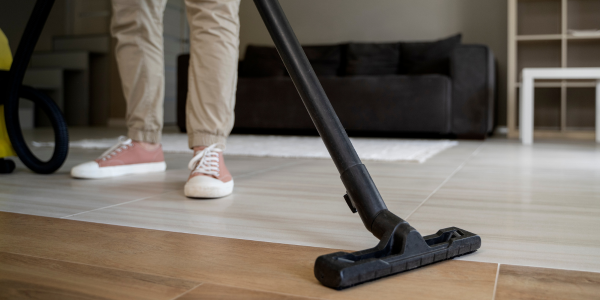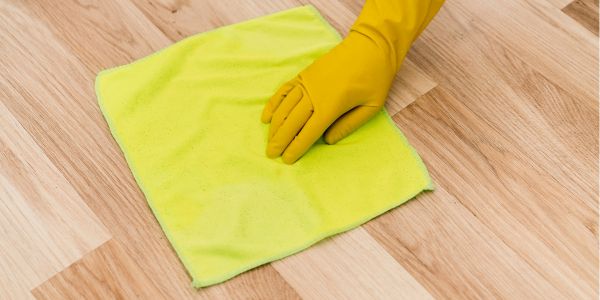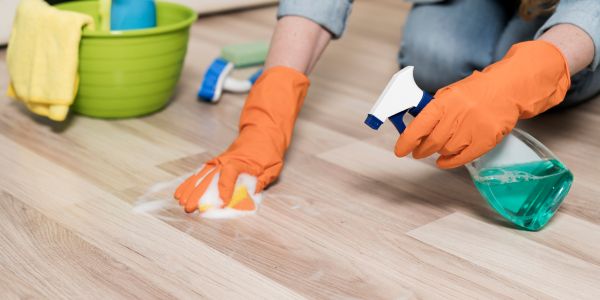WE'RE THE HARDWOOD EXPERTS. CALL US NOW: +1 878-217-6297
How To Clean Engineered Hardwood Floors?

Introduction
Engineered hardwood floors have become a staple in modern home design, offering the timeless appeal of hardwood with added durability and flexibility. Unlike traditional hardwood, which is milled from single pieces of wood, engineered hardwood consists of a top layer of real hardwood veneer attached to multiple layers of plywood or fiberboard. This construction enhances its stability and allows it to resist changes in temperature and humidity better than solid wood. As such, engineered hardwood is an excellent choice for nearly every room in your home, including basements and kitchens where moisture levels might otherwise pose a problem for solid hardwood floors.
Understanding how to properly clean and maintain your engineered hardwood floors is crucial to preserving their beauty and extending their lifespan. Over the years, I’ve honed my expertise in floor care through both professional experiences and extensive research, allowing me to offer valuable insights and proven strategies. Proper cleaning not only enhances the appearance of your floors but also protects your investment. In this article, we’ll explore effective daily cleaning practices, deep cleaning methods, and preventive measures to help you keep your engineered hardwood floors looking as splendid as the day they were installed. Let’s dive into the essential practices that ensure these floors continue to add warmth and elegance to homes for years to come.
Daily Cleaning Practices
Maintaining the pristine condition of engineered hardwood floors doesn’t have to be a chore. With simple daily practices, you can keep your floors looking spotless and prevent damage over time. Let’s break down the two fundamental aspects of daily cleaning: sweeping or vacuuming, and light mopping.
Sweeping Or Vacuuming
The key to preserving the finish and integrity of your engineered hardwood floors is regular debris removal. Everyday activities can bring in dirt and grit that, if left unchecked, act like sandpaper underfoot, gradually wearing away the finish of your floors. To combat this, I recommend incorporating daily sweeping or vacuuming into your routine.
Recommended Tools:
- Soft Bristle Broom: A soft bristle broom is gentle on the hardwood surface yet effective enough to gather dust and small particles.
- Hardwood-Friendly Vacuum: Look for vacuums that have a setting for hardwood or use a model with a soft brush attachment. This prevents scratching and allows you to pick up finer particles and pet hair that a broom might miss.
Using these tools daily helps maintain the floor’s luster and prevents the build-up of debris that can lead to scratches and other damage.
Light Mopping
While sweeping and vacuuming are great for removing loose debris, light mopping will capture any lingering dust and address spills that may have occurred.
Suitable Cleaning Solutions:
Diluted Vinegar and Water: Mix a solution of 1 part white vinegar to 10 parts water. This natural cleaner is gentle on the finish of your floors while being tough enough to clean effectively without leaving harmful residues.
Proper Technique:
Damp Mopping, Not Wet: It’s crucial to use a damp mop rather than a wet one. Excessive moisture can seep into seams and edges, potentially damaging the core of engineered hardwood. Wring your mop thoroughly to ensure it’s just damp. Mop in the direction of the wood grain to enhance the floor’s natural pattern, which also helps prevent streaking.
From my experience, following these light mopping guidelines not only keeps your floors clean but also protects them from the common pitfalls of overzealous water use. This simple daily maintenance routine will help extend the life of your engineered hardwood floors and keep them looking as vibrant and welcoming as when they were first installed.
Deep Cleaning Methods
While daily cleaning is essential for maintaining the surface appearance of your engineered hardwood floors, periodic deep cleans are crucial to address the dirt and grime that regular sweeping or vacuuming might miss. Here’s how to approach deep cleaning and stain removal effectively, based on my experience and best practices in floor care.
Frequency of Deep Cleaning:
The frequency of deep cleaning your engineered hardwood floors should align with the level of foot traffic and usage they receive. For most homes, a thorough deep clean every three to six months is adequate. However, in high-traffic areas or homes with pets and children, you might need to deep clean more frequently, perhaps every two months.
Choosing The Right Cleaner:
- Commercial Solutions: There are many commercial cleaners specifically designed for engineered hardwood floors. Products like Bona Hardwood Floor Cleaner or the pH-neutral Pledge Wood Floor Cleaner are formulated to effectively clean without damaging the wood. Always ensure the product is suitable for use on engineered hardwood to avoid harming the finish.
- Homemade Solutions: For a DIY approach, a mixture of diluted vinegar (as mentioned earlier) or a mild dish soap solution can be effective. Use about a teaspoon of mild dish soap per gallon of warm water for a gentle but effective clean.
Stain Removal
Accidents happen, and knowing how to handle common stains like spills and scuffs can save your floors from permanent damage.
Techniques for Dealing with Common Stains:
- Immediate Action: The first rule of stain removal is to act quickly. The longer a spill sits, the harder it is to remove and the more likely it is to cause lasting damage.
- Gentle Blotting: For liquid spills, use a soft, absorbent cloth to blot the spill gently. Avoid rubbing, as this can spread the stain or push it deeper into the wood.
- Specific Stain Removal: For tougher stains, such as oil or ink, you can use a bit of rubbing alcohol on a cloth to dab the stain gently. If dealing with something sticky like gum or wax, placing a bag of ice on the area until the material hardens makes it easier to gently scrape off without scratching the floor.
Products to Use and Those to Avoid:
- Safe Products: Use pH-neutral cleaners that are specifically labeled as safe for engineered hardwood. Non-abrasive cloths and mops are essential to prevent scratching the surface.
- Products to Avoid: Never use harsh chemicals like bleach, ammonia, or abrasive scrubs, as these can strip the finish and damage the wood. Additionally, avoid any oil-based cleaners or furniture sprays, as they can create a slippery residue and attract more dirt.
Incorporating these deep cleaning and stain removal techniques into your maintenance routine will ensure that your engineered hardwood floors remain beautiful and durable for years to come. By choosing the right cleaners and employing effective cleaning methods, you can tackle any dirt challenge that comes your way, preserving the natural charm and functionality of your flooring.
What To Avoid
When maintaining engineered hardwood floors, what you avoid is just as important as the cleaning methods you employ. Certain products and tools can severely damage the delicate finish and underlying structure of your floors. Based on my experience in writing and researching floor care, here are the key things to steer clear of to keep your engineered hardwood in top condition.
Harmful Products
Many common household cleaners and substances can be detrimental to engineered hardwood floors, causing damage that can be costly or impossible to reverse. Here’s a list of products to avoid:
- Ammonia: This harsh chemical can degrade the finish on your floors, leading to dulling and increased susceptibility to damage.
- Oil Soaps: While they may be touted for their shine-enhancing properties, oil soaps leave a residue that builds up over time, attracting dirt and dulling the surface.
- Wax-Based Cleaners: These can form a filmy layer on the floor that not only attracts more dirt but also makes it difficult to apply a new finish if refinishing is needed.
- Harsh Chemical Cleaners: Products containing chlorine bleach or acidic substances can etch or stain the finish of your hardwood, leading to permanent discoloration.
- Steam Cleaners: The high heat and moisture of steam cleaners can cause the wood to swell, warp, or delaminate, especially over time.
Improper Cleaning Tools And Techniques
The tools and techniques you use can also impact the longevity and appearance of your engineered hardwood floors. Here’s what to avoid:
- Steam Mops and Wet Mops: As mentioned, the excessive moisture from steam mops can penetrate the layers of engineered wood, leading to warping and structural damage. Similarly, wet mops can leave standing water on the surface, which seeps into seams and edges, causing similar issues.
- Abrasive Tools: Scrub brushes, steel wool, or any rough material can scratch and scuff the finish of your floor. Even small scratches can become dirt traps and degrade the finish over time.
Tips for Safe Cleaning
To ensure that you are cleaning your engineered hardwood floors safely and effectively, always opt for:
- Soft Tools: Use microfiber mops and soft cloths for cleaning and drying. Microfiber not only avoids scratches but also traps dirt and moisture more effectively than other materials.
- Proper Technique: Always wipe spills promptly and clean with the grain of the wood to minimize the risk of scratches. When mopping, make sure your mop is wrung out well to avoid leaving excess moisture.
By avoiding these harmful products and improper cleaning techniques, you can help ensure that your engineered hardwood floors remain a beautiful and durable part of your home for years to come. It’s always worth investing a little extra care to preserve the quality and aesthetics of your flooring.
Frequently Asked Questions
Here are some frequently asked questions about cleaning and maintaining engineered hardwood floors, along with detailed answers based on my extensive experience and research in flooring care:
1. Can You Use Swiffer On Engineered Hardwood?
Yes, Swiffer products are generally safe for engineered hardwood floors. The Swiffer WetJet, for example, can be used sparingly with the proper solution to ensure that not too much moisture is applied. Always use the wood floor-specific cleaning solution and avoid letting any liquid sit on the floors.
2. What Are The Best Cleaners For Engineered Wood Without Leaving Streaks?
Cleaners like Bona Hardwood Floor Cleaner and Pledge Wood Floor Cleaner are excellent choices for engineered wood as they are formulated to be streak-free. It’s crucial to follow the instructions on dilution and application to avoid residue and streaks. Additionally, always use a clean, dry microfiber cloth to finish the cleaning process to ensure all residue is removed.
3. How Often Should Engineered Hardwood Floors Be Refinished?
Engineered hardwood floors should only be refinished when absolutely necessary, due to the thin layer of hardwood veneer on top. Most engineered floors can handle being refinished 1-2 times during their lifetime, depending on the thickness of the top layer. Always consult with a professional before deciding to refinish.
4. Is It Safe To Use Vinegar To Clean Engineered Hardwood Floors?
Vinegar is a safe and effective cleaner for engineered hardwood floors when diluted properly (about 1/4 cup of vinegar to a gallon of water). It helps remove grime without leaving residues or damaging the finish. However, it’s important to use it sparingly and ensure the mop is well-wrung to avoid excessive moisture.
5. Can Engineered Hardwood Be installed In A Kitchen Or bathroom?
Engineered hardwood is more resistant to moisture and humidity changes than solid hardwood, making it a suitable option for kitchens. For bathrooms, where moisture levels are significantly higher, it’s essential to choose a highly water-resistant type or opt for another flooring type designed to handle high moisture environments.
6. How Can You Prevent Scratches On Engineered Hardwood Floors?
Prevent scratches by using area rugs and runners in high-traffic areas, placing felt pads under all furniture legs, and maintaining regular cleaning to remove dirt and debris. Also, avoid wearing high heels or heavy shoes on engineered hardwood.
Conclusion
Maintaining engineered hardwood floors is crucial not only to preserve their beauty but also to extend their lifespan. With the proper care and cleaning practices, these floors can continue to bring warmth and elegance to your home for many years. Routine cleaning, using the right products and methods, and responding quickly to spills can significantly minimize wear and damage. Remember, the key to keeping your floors looking their best is as much about preventing damage as it is about regular maintenance. Embrace these practices, and your engineered hardwood floors will remain a valuable and beautiful part of your home’s aesthetic.

